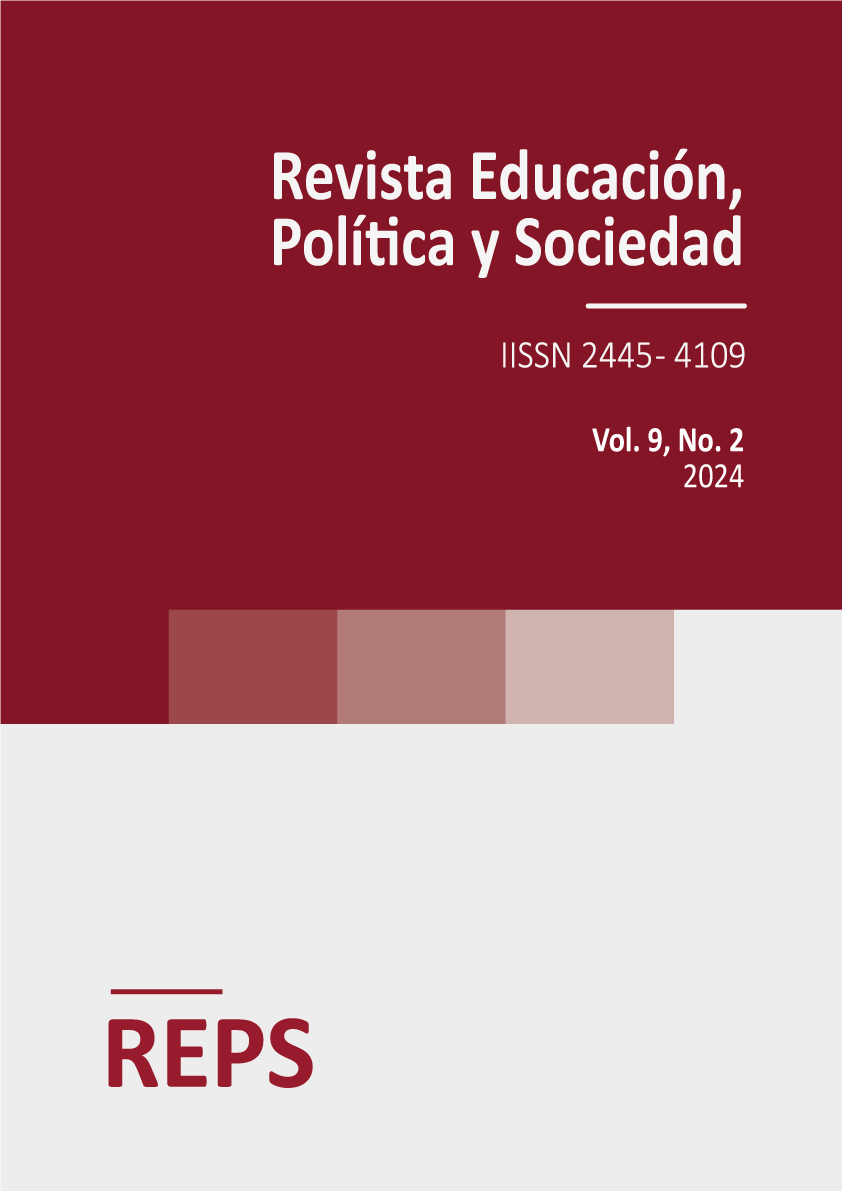Keywords:
Indigenous education, autochthonous childhood, indigenous early, childhood education and care, early childhood
This work is licensed under a Creative Commons Attribution-NonCommercial 4.0 International License.
Abstract
Based on a multidisciplinary approach in educational sciences, this article aims to explore the notion of "down/free-time" in what they represent in a pedagogical approach specific to Indigenous professionals in Bogotá. A methodology built around video observations, interviews and charlas, strives to capture children's experiences of "down/free-time" in three Casas de pensamiento indigena (CPI), crossing the views of parents, professionals and community leaders (Taitas from now on). Our analyses lead us to the continuum of “down/free-time " and activity-time for young children, through the pedagogical follow-through provided by Indigenous professionals, in relation to moments spent in the discontinuity of "down/free-time".
Downloads
References
Bogotá. (2011). Lineamiento pedagógico y curricular para la educación Inicial. Alcaldía Mayor de Bogotá, Secretaría de Educación de Bogotá.
Bogotá (2017). Lineamientos y estándares técnicos de calidad para los servicios de educación inicial en Bogotá. Secretaría Distrital de Integración Social.
Fals Borda, O. y Moncayo, V. M. (2009). Una sociología sentipensante para América Latina. Siglo del hombre y Clacso.
Brougère, G. y Ulmann, A.-L. (Éds.) (2009). Apprendre de la vie quotidienne. Presses Universitaires de France.
Brougère, G. (2009). Vie quotidienne et apprentissages. En G. Brougère y A.-L. Ulmann (Eds.), Apprendre de la vie quotidienne (pp. 21-31). Presses Universitaires de France.
Brougère, G. (2011). Apprendre en participant. En É. Bourgeois y G. Chapelle (Éds.), Apprendre et faire apprendre (pp. 116-124). Presses Universitaires de France.
Brougère, G. (2016). De l’apprentissage diffus ou informel à l’éducation diffuse ou informelle. Le Télémaque, 49, 51-63.
Clark A. y Moss P. (2011) Listening to Young Children: the Mosaic Approach. JKP.
Collier J. y Collier M. 1986 Visual anthropology: Photography as a Research Method. UNM Press.
Harper D. (2012). Visual Sociology. Routledge.
Julien, F. (2009). Les transformations silencieuses. Grasset.
Lave, J. y Wenger, E. (1991). Situated Learning: Legitimate Peripheral Participation. Cambridge University Press.
Wenger, E. (1998). Communities of practice: Learning as a social system. Systems thinker, 9(5), 2-3.
Malaguzzi, L. (1993). For an education based on relationships. Young children, 49(1), 9-12.
Malaguzzi, L. (1994). Your image of the child: Where teaching begins. Child Care Information Exchange, 52-52.
Malaguzzi, L. (2021). La educación infantil en Reggio Emilia. Ediciones Octaedro.
Molina Murillo, F. y Díaz Baron M. (2010). Lineamiento Pedagógico para la Educación Inicial Indígena en Bogotá D.C. Alcaldía de Bogotá, IDIE, OEI, SDIS. Disponible en https://lc.cx/rKwfG9
Piette, A. (2008). L’anthropologie existentiale : présence, coprésence et leurs détails. Antrocom, 4(2), 131-138.
Piette, A. (2011). Fondements à une anthropologie des hommes. Hermann.
Piette, A. (2013). Au cœur de l'activité, au plus près de la présence. Réseaux, 6, 57-88.
Presidencia de la República. (2015). De cero a siempre. Estrategia de atención integral a la primera infancia. Bogotá: Comisión Intersectorial para la Atención Integral de la Primera Infancia.
Sanchez Caro, C. M. (2019). Niños/as indígenas en Bogotá, o de la dualidad vulnerable/agente. Sociedad e infancias, 3, 153-169.
Sanchez Caro, C. M. (2020a). «Éduquer c’est faire du politique et vice versa»: Les Casas de pensamiento indígena à Bogota, une question politique et poly-éthique (Doctoral dissertation, Paris 13).
Sanchez Caro, C. M. y Garnier, P. (2020b). Indigenous caregivers and indigeneity in Bogota: between two worlds. Early Years, 40(4-5), 499-513. DOI: 10.1080/09575146.2020.1818060
Smith, D. E. (2005). Institutional ethnography: A sociology for people. Rowman Altamira.
Smith, D. E., y Griffith, A. I. (2022). Simply institutional ethnography: Creating a sociology for people. University of Toronto Press.
Trilla, J. y Puig, J. M. (1996). La pedagogía del ocio. Laertes.

